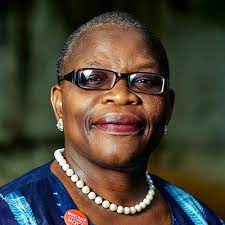Human Capital Africa (HCA), an accountability and advocacy organisation that uses evidence to mobilise governments to take actions that improve foundational literacy and numeracy outcomes, has officially launched a platform to measure and access the learning performance of children to address the gaps in Sub-Sahara Africa’s (SSA) educational systems.
The HCA learning scorecard ranks countries in SSA on the quality of primary education. Countries are scored on indicators in six categories including enrolment, completion, learning, resourcing, remediation and Socio-economic factors.
These represent the ability of the education sector to provide quality education for children at a young age to prepare them for a future of learning.
The tool allows all the partners involved in the education system to understand where they are against their objectives, embedding an inclusive approach. It also enables regular multi-level reviews at the policy and district level, allowing for mid-course corrections and helping to build collective ownership and accountability.
According to the African leaders, policy-makers, business leaders, civil society organisations (CSOs) and prominent African intellectuals who gathered at the Harvard Club in New York to launch and endorse the initiative, various governments brag about interventions implemented to address educational crises. It is therefore important that an independent monitoring mechanism is used to ensure accountability and provide the insights governments need to change and adapt.
The event took place on the sidelines of the UN Transforming Education Summit in New York to call attention to the scale of the learning crisis in Africa, where it was revealed that 9 out of 10 children are unable to read with understanding by the age of 10.
Speaking at the launch, HCA founder Dr. Oby Ekekwesili said: “It has been incredibly encouraging to see recognition of the learning crisis at this summit and to see the level of commitment among African leaders, policy-makers and business leaders to address the generational challenge the learning crisis represents. This is a problem we are going to crack, and I am committed to ensuring that we take the corrective measures necessary. To do this, we need a common way to assess progress and guide decision-making.
“It is clear from the results of our inaugural HCA scorecard that we have considerable work to do, with the majority of countries scoring poorly on our 2022 indicators. By providing these benchmarks, we have an opportunity to celebrate the countries making advances, and to focus on those that need the most help. Through a series of quarterly and annual reviews, we can ensure the right assistance is being provided at the right time.”
He expressed gratitude to the countries that partnered with his outfit to launch the initial scorecards, and to the government and the Minister of Education of Malawi, especially for making a presentation on the Malawi assessment, indicating that it is the kind of leadership needed in the continent.
President of Guinea Bissau, Umaro Sissoco Embaló, speaking in his capacity as Chairman of ECOWAS, reinforced the region’s commitment to take action. “9 out of 10 children cannot read a simple sentence by the age of ten, this is an issue of utmost importance, and Africa must not let itself be left behind.
“We are committed to taking urgent and decisive action to ensure all children develop foundational learning skills to realise their full potential. Today I take this opportunity to urge us to convert the commitments we have made into actions and interventions in your countries,” he said.
He further urged African leaders to leverage the scorecard system to measure and report on progress regularly, using its reviews to motivate people when they succeed and to hold them accountable for underperformance.










